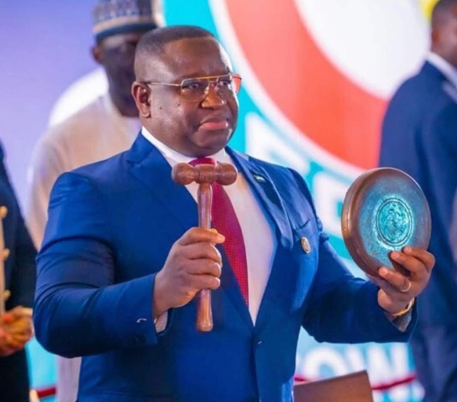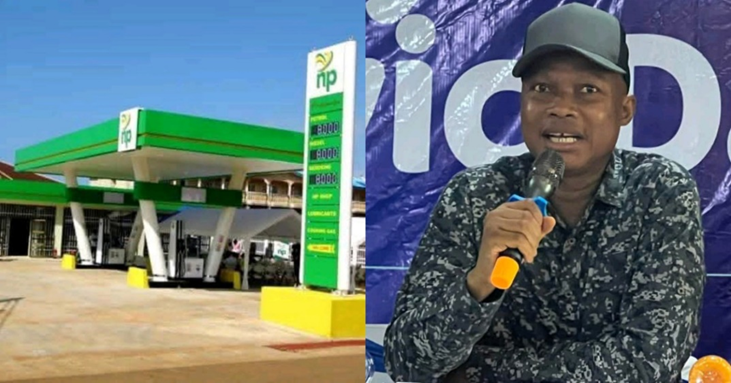By Mackie M. Jalloh
Abuja, Nigeria | Sunday, 22nd June 2025
In a landmark development for both Sierra Leone and the broader West African region, President Dr. Julius Maada Bio has assumed the Chairmanship of the Authority of Heads of State and Government of the Economic Community of West African States (ECOWAS), becoming the first Sierra Leonean Head of State in history to lead the regional bloc.
The historic announcement was made during the ECOWAS Summit held in Abuja, where leaders of the fifteen-member regional organization gathered to deliberate on pressing political, economic, and security issues facing West Africa. The appointment of President Bio to the region’s highest political leadership position has been received with widespread acclaim at home and cautious optimism across the region.
As he stepped into the role, President Bio expressed humility and resolve, thanking his colleagues for the confidence reposed in him and pledging to serve with vision, integrity, and courage.
“Thank you for placing your trust in me and in the Republic of Sierra Leone,” he said during his acceptance speech. “I accept this responsibility with full awareness of the magnitude of the task ahead and the complexity of the moment.”
President Bio also paid tribute to his predecessor, President Bola Ahmed Tinubu of Nigeria, for what he described as steadfast leadership and commitment to advancing dialogue and peace during his tenure.
“President Tinubu led ECOWAS during a time of grave challenges. His commitment to regional dialogue and consensus-building has left a foundation upon which we must now build,” he stated.
In outlining his priorities for ECOWAS under his chairmanship, President Bio laid out a clear and ambitious roadmap centered around four strategic pillars: restoring constitutional order and deepening democracy; revitalizing regional security cooperation; unlocking the full potential of economic integration; and enhancing institutional credibility within ECOWAS.
1. Restoring Constitutional Order and Deepening Democracy:
President Bio emphasized the urgent need to address the democratic backsliding in the region. With a number of West African countries grappling with military coups, electoral crises, and political instability, Bio called for stronger mechanisms to uphold constitutional governance and the rule of law.
“We must make clear that democratic governance is not optional—it is the foundation upon which regional peace and prosperity rest,” he declared.
2. Revitalizing Regional Security Cooperation:
Amid rising insecurity caused by terrorism, transnational organized crime, and insurgency—particularly in the Sahel and Gulf of Guinea regions—President Bio pledged to prioritize collective security. He proposed the strengthening of regional security architectures and called for more support for joint operations among member states.
“Insecurity anywhere in West Africa threatens stability everywhere. We must act with collective urgency,” he said.
3. Unlocking Economic Integration:
President Bio highlighted the untapped potential of West Africa’s economy and emphasized the importance of implementing trade protocols, harmonizing regulations, and investing in cross-border infrastructure. He noted that economic interdependence would be key to sustainable development and resilience.
“Economic integration is not just a goal—it is a lifeline for millions of our citizens. Let us break down barriers and build bridges,” he urged.
4. Building Institutional Credibility:
President Bio stressed that ECOWAS must strengthen its internal governance structures, financial management, and responsiveness to member states. He said the institution must reflect the values of transparency, accountability, and inclusivity to regain public confidence across the region.
“Our institutions must be as strong and credible as the values they seek to defend. Only then will our citizens believe in regionalism,” he noted.
President Bio’s appointment is not only a personal and national milestone but also a diplomatic breakthrough for Sierra Leone. The country, long seen as a small voice within regional affairs, now finds itself at the center of decision-making in a critical period for West Africa’s future.
Many political observers see the appointment as a recognition of Sierra Leone’s recent gains in governance, peacebuilding, and democratic consolidation. Under Bio’s leadership, the country has made strides in education reform, gender equality, digital governance, and electoral transparency—achievements that have elevated its profile within and beyond West Africa.
“This is a proud moment for Sierra Leone and a defining one for the region,” remarked one diplomat at the summit. “It signals that leadership is no longer about size or power, but about vision and integrity.”
However, President Bio’s leadership of ECOWAS comes with substantial challenges. The regional bloc is currently grappling with multiple political transitions, suspensions of member states due to military coups (including Mali, Burkina Faso, and Niger), and the formation of rival alliances such as the Alliance of Sahel States (AES), which threatens the unity of the ECOWAS framework.
In addition, the region faces increasing economic strain from inflation, youth unemployment, climate-related disruptions, and slow post-COVID recovery. Bio’s leadership will be tested on how well he can bring coherence, unity, and practical solutions to these deeply rooted problems.
In closing his remarks, President Bio urged his fellow Heads of State to recommit to the ideals upon which ECOWAS was founded: solidarity, shared prosperity, and peaceful coexistence.
“Our differences are real, but our shared future is stronger. Let us rise to the challenge and prove to our people that ECOWAS is not just an institution—it is their hope,” he said.
As the region watches closely, many will be looking to see whether President Bio can translate his national reformist credentials into regional transformation. For now, Sierra Leoneans everywhere are celebrating a proud and unprecedented chapter in their nation’s history.



